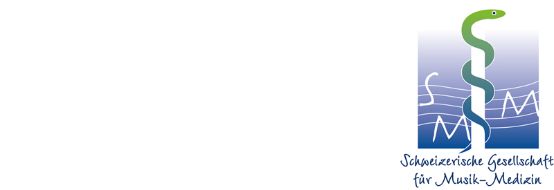Corona still determines our lives
The Federal Council has lifted the "special situation". Nevertheless, the coronavirus is still with us. The Fribourg Institute of Musicians' Medicine points out the risks that still apply.

SMM - The Institute offers regularly updated risk assessments and recommendations. The political assessments of the situation in Germany and Switzerland differ. However, the analysis of the Fribourg team led by Claudia Spahn and Bernhard Richter is also helpful in this country. In the latest update from mid-March, it emphasizes that vaccination remains an important and central point in the fight against the coronavirus, as infection rates remain high. It also continues to recommend the established test methods for culture. They significantly minimize the risk of infection in samples if all participants (regardless of the date of their last vaccination or recovery) are tested on a daily basis.
The World Health Organization (WHO) emphasized the importance of the 3G Plus rule and the AHA rules in a statement on 11 January. 3G-Plus means that access is only permitted for fully vaccinated or recovered persons or persons with a negative PCR test. A negative rapid antigen test is not sufficient. The German AHA rule reminds people to keep their distance, take hygiene measures and wear face masks. If these are adhered to, the current state of knowledge suggests that active singing and making music is still possible despite the more contagious Omikron variant. To reduce the risk, the Fribourg Institute recommends a daily test for all participants in a rehearsal or concert event in addition to the 3-G rule until further notice, i.e. it suggests significantly more restrictive measures than Switzerland.
Since the end of February, amateur choirs in Germany have been allowed to perform without masks again. Nevertheless, the Institute recommends that all participants be tested before the start of the rehearsal/event, even when singing together (especially if the mask can be dispensed with), until further notice.
The team writes that many people are finding it difficult to reconnect with life before coronavirus, although numerous activities are once again permitted for vaccinated people despite high infection rates. Singing in particular has the label of being dangerous. This barrier must first be overcome. The fact that singing and making music are extremely positive and important for mental health must be re-established as the risk of coronavirus decreases. Encouraging children and young people to sing and make music is a particularly important task and an ethical responsibility.
According to the institute, the main transmission of viruses that cause respiratory infections generally occurs via aerosols that are produced when coughing and sneezing and are absorbed by the other person via the mucous membranes of the nose, mouth and deep respiratory tract when inhaled and possibly via the conjunctiva of the eye. According to simulations, if an infected person coughs up viruses, it can be assumed that the viruses will still be detectable in the air after several minutes and possibly hours, even if the infected person has already moved away. It is therefore still important to observe the social distancing rule when making music to protect against droplet infection.
However, contact transmission continues to play a role: Viruses can be transmitted from surfaces if they reach the hands by touching these contaminated surfaces and the hands then touch the face without being cleaned - provided the viruses have retained their infectious properties up to this point.
Musicians of all musical genres should "take strict care to avoid any contact with others in the event of non-specific symptoms such as fever plus respiratory symptoms (dry cough, catarrh) or more typical symptoms such as acute loss of olfactory and gustatory function until the infection has been ruled out by SARS-CoV-2 PCR testing of a swab". The newer omicron variant can manifest itself with milder symptoms, but is more contagious than the previously prevalent delta variant.
Link to the mentioned paper:
> www.mh-freiburg.de/service/covid-19/risikoeinschaetzung








